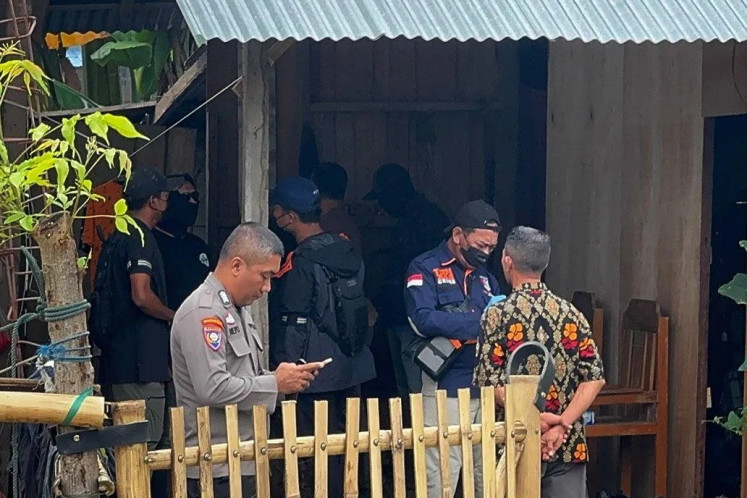Popular Reads
Top Results
Can't find what you're looking for?
View all search resultsPopular Reads
Top Results
Can't find what you're looking for?
View all search resultsThe hidden reality of informal employment statistics
Jobs are being created, but many remain unprotected and unworthy of the term “decent work.”
Change text size
Gift Premium Articles
to Anyone
T
he high proportion of informal workers in Indonesia’s workforce may not fully reflect the realities on the ground. Behind the numbers lies a fragile world of work, still far from providing adequate protection and stability.
Limitations in how informality is defined and measured may distort the picture and obscure the real scale of the problem. Adopting international standards in labor statistics has therefore become urgent if policies to improve job quality are to genuinely deliver decent and protected work for all.
The World Bank’s East Asia and Pacific Economic Update: Jobs report, released earlier this month, shows that labor markets across East Asia and the Pacific continue to grow and absorb workers. Yet, much of this growth comes from low-productivity service sectors dominated by informal employment. What appears as healthy growth on the surface hides a deeper problem: jobs are being created, but many remain unprotected and unworthy of the term “decent work.”
This finding aligns with the International Labour Organization’s (ILO) World Employment and Social Outlook (WESO) reports since 2023, which show that informal work has increased in the post-pandemic period, while the earlier momentum toward formalization has waned. Young people, in particular, now face a more uncertain labor market with limited access to jobs offering social protection or legal security.
In Indonesia, this challenge is especially evident. Statistics Indonesia (BPS) reported in May that 59.4 percent of Indonesian workers are classified as informal, roughly three out of every five employed persons. Yet, this figure does not fully capture the true extent of informality. It is based on a simplified definition that categorizes workers primarily by employment status.
Under the current framework, anyone classified as an employee or an employer with at least one permanent worker is considered formal, while others are deemed informal. By this logic, a street food vendor employing one helper might be labeled “formal,” even without any access to social security or legal protection. While this simple concept offers an entry point, it fails to portray the deeper structural vulnerabilities of the labor market.
Applying the standards recommended by the ILO’s 17th International Conference of Labour Statisticians (ICLS) to data from Indonesia’s National Labor Force Survey (Sakernas) reveals that the true share of informal workers may reach 75–76 percent in the post-pandemic period, a figure that continues to fluctuate. Under the resolution, informal employment includes own-account workers operating unregistered or unincorporated businesses and wage workers without social protection benefits.



















